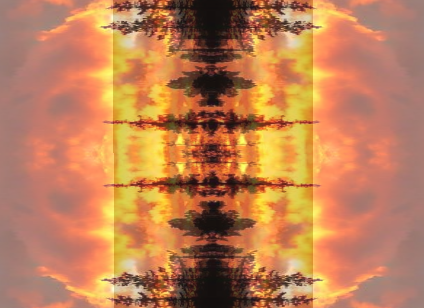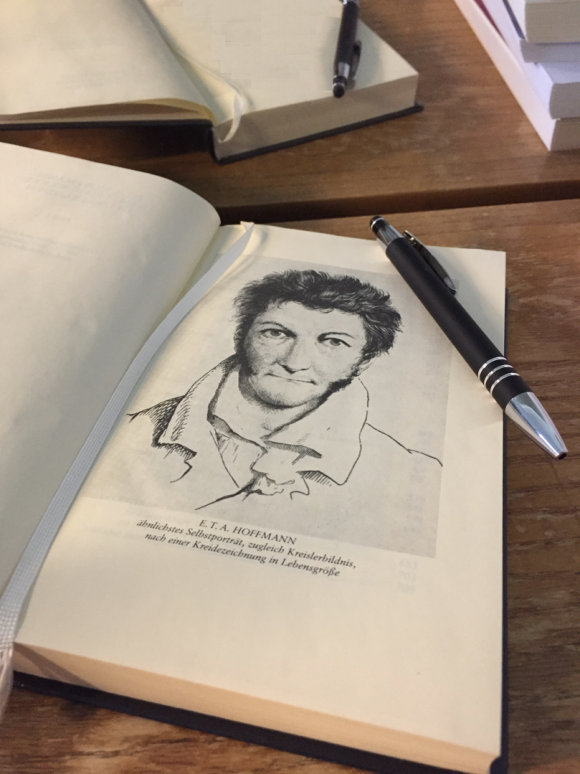There’s a lot more interesting things to say about my recent topic, the situation I presented as variations over the death of Damocles.

5. When reading (or hearing about) such a story, one cannot help to feel that something “needs explaining” here. But what exactly is it one wants an explanation for?
Is it one of the events that should be explained? (And which one: the death of Damocles, or the stopping of the clock?) Or is it rather some aspect of these events, such as (most likely) their timing? Which way round, though: does it need explanation that Damocles died at the same time as when his clock stopped? Or, conversely, that the clock stopped when Damocles died? Or is it perhaps more complex than that? Perhaps one might say that such concurrent events as the death and the clock’s stopping simply happen all the time, that sometimes they even happen simultaneously, but what needs explanation is the additional occurrence of someone noticing both and making the connection, understanding one event to relate in metaphorical terms to the other? An if so, does it need explanation just as such when it happens, or does it need explanation if it is someone specific (such as, say, Cassandra) who makes the metaphorical connection? Is it, in other words, a shared psychological pattern or an individual psychological situation that would factor into the explanation?
And then, supposing we’ve gotten clearer about what exactly it is that we need explained, what type of explanation would satisfy us? What would even count as an explanation? Suppose we’d find some kind of explanation, would we accept any of them, or might some fail to satisfy us, because it might be the “wrong type” of explanation? (Some schools of thought have been known to reject off-hand any explanation just because it uses terms like “causality”, “logic”, or “rationality” — and then go on to propose an alternative no less causal in nature, just without the wording, and of questionable plausibility.)
So before we look closer into each of these candidates for what we might actually try to explain, let’s make a step back and try a little reflection. It is often helpful to understand for which purpose we want an explanation. Why do we feel we need one, in our case? Is it because we see a regularity, and want to be able to predict similar situations in the future? Do we notice an exception to the normal and seek the security of understanding why it happened, so that we won’t be surprised should something similar recur? Do we want to assign responsibilities or posit divine intentions? Are we looking for confirmation for a world view, such as “one can always find a rational explanation” or “there are things that simply cannot be explained rationally”?
That last one is particularly tricky, of course. Someone holding either of these contrary world views might count our story as (anecdotal) confirmation, but of course so might someone who holds the other. And since the story of the death of Damocles is only a single instance, if one finds a “rational” explanation, this would still not count as proving the claim that one can “always find” one, nor as a counterexample to the thesis that there are cases where one can’t. On the other hand, if we have no “rational explanation” here, the adherent of the first view can always add “not yet, anyway”, whereas the adherent to the second might triumphantly claim it as “proof”, but would then be in blatant contradiction to his “antirational” stance (for what are proofs, confirmations of theories, or counterexamples, if not “rational” instruments?) — a performative self-contradiction that undercuts the view it was supposed to support. And we haven’t even asked yet whether an explanation has to be necessarily a “rational” one, what “rational” is supposed to mean in this context, and what an explanation that is not rational (if something like that was sought) might look like.
Already from these quick considerations it appears we better steer clear of these “confirms my world view” (or, even more so, the “refutes their world view”) kinds of discussion. They are likely only a front for covertly fighting some different fight or other, and neither really concerned with the phenomenon nor with advancing anyone’s insights.
The trouble is, of course, that we’re not really better off with moral or religious framings (what I have called “assigning responsibilities or positing divine intentions”), either. Those are usually more well-defined than the “world view” disputes, but only when they depend on specific frameworks in moral philosophy or religious doctrine. And that simply seems not the idea when we feel there should be “an explanation” for what we’ve learned about the death of Damocles. We’re not asking how this phenomenon might be framed, say, in terms of a misinterpretation of the workings of the (Kantian) faculty of Einbildungskraft, which creates images in free play, as empirical data; or how accumulated karma in Damocles’ and perhaps Cassandra’s lives might have run its course in producing the incident. We’re asking for something simpler, something independent of such elaborate frameworks of interpretation; or, to put it the other way round, we do not assume that the phenomenon, and the “explanation” we seek, can only be understood on the background of Kantian philosophy, or Buddhist (Hinduist, Taoist, Jainist, …) religion, or any other such specific system of thought.
But then, finally, it also doesn’t seem we want to make scientific predictions about something we expect to regularly recur. What requires explanation in the death of Damocles story is not of that type either. It’s not even frequent; if anything, it’s rare. (Although not rare enough to be considered unique: those susceptible to requiring an explanation here typically expect it to happen occasionally. Particularly if the motivation is to be secure against future surprises, one cannot assume that the situation was something that happened only once, for then there would be nothing to be insecure about.)
We’ve hit a dead end, then, with this reflection about what our motivation is for seeking an explanation. And although this may not seem encouraging at this point, it’s a result at least in a negative sense: we’re a little clearer about what we’re not looking for. Let’s return to the question what exactly it is that we’d like to have explained.
6. I’ve already listed the candidates. Let’s go through them one by one.
When we feel that something “needs explaining” about the story of the death of Damocles, do we ask for an explanation of the event of the death itself? Hardly, for we already know that it was death by natural causes. Remember that in the variant where the death is an episode in your novel, we stipulated that right from the beginning? And in the real-world cases, that’s also typically the case. True: if not (if there is foul play involved), we actually might look for a clearly defined type of explanation, namely, one exposing the foul play and its motives. But although that is a case where we do “need an explanation”, it’s not the one we were looking for, the one that causes the feeling that something about the death of Damocles “needs explaining”. In fact, that feeling vanishes once we realize there was foul play, and start investigating it. Once a hidden agenda, some sinister backstory comes in, there is an obvious and unproblematic sense to our search for an explanation. It’s a case of a typical situation with a known type of explanation, namely: who’s the perpetrator, what were the intentions and actions, and so on: a criminal case. It will be solved by detective work, legal prosecution, etc. It may not necessarily be obvious what the explanation is, but the type of explanation is clear and simply understood.
Almost the same can be said if we switch to the second candidate question: do we need to explain the event of the clock stopping? Again, if it was simply part of foul play, a move in someone’s agenda (as it sometimes occurs in Agatha Christie novels), it would make sense to search for explanations, but not the kind we were setting out to find; we would be back to the criminal investigations type. The strange sense that we “need an explanation” comes about only if the clock stops, as we might put it, from “natural causes” as well: if it simply stops because it runs out. But in that case, once more, there seems nothing to explain about the event as such. A grandfather clock, after all, is a mechanism: it needs regular rewinding. Once its energy is used up, it stops working. (If it’s electric, and the battery runs out, an analogous line of thought applies.) There is nothing unusual here, which “needs an explanation”. It all follows the laws of mechanics (or, more broadly, physics).
Of course, we might modify the story somewhat, to make it more interesting. Let’s say the clock had been wound up and would have run for much longer, but instead stops early, with some tension still on the spring, precisely at the moment of Damocles’ death. Now we’d want to know more. Is this a strange case of non-conformity with physics? A spring that’s wound up and does not transfer energy, inexplicably? I dare say we’d have an entirely different story then, one in which the death of Damocles soon becomes uninteresting to the newspapers and many “professor of science” types of character would discuss the strange phenomenon. If this were a novel you’re writing, it would belong in the field of science fiction, set in a parallel universe where the laws of physics don’t work in the way in which they do in the actual universe. If it were a real-world story, the newspapers would not just have quoted it as a notable coincidence: they would have a field day of reporting a baffling phenomenon. We haven’t heard of something like this with any of the real-world stories that are similar to the Damocles case, though. There, it’s always one of these: the clock runs out normally (just interestingly does so at the moment of the death), or else it has a physical blockade, or otherwise malfunction (again, not interesting in itself, but only for the fact that it appears just at the moment of the simultaneous death). So there is nothing “inexplicable” about the event of the clock’s stopping, either.
Which leaves us with the timing.
(And in a sense, we’ve known this all along, since we’ve used the word “coincidence” to characterize the phenomenon. That seemed apt from the beginning. But notice that we’re still left with two candidates for what co-incides, i.e. “falls together”: it could be the times at which the two events occur, or it could be the entire configuration of events together with someone perceiving it as metaphorically connected. It would be rash to fixate on aspects of simultaneity simply by default.)



